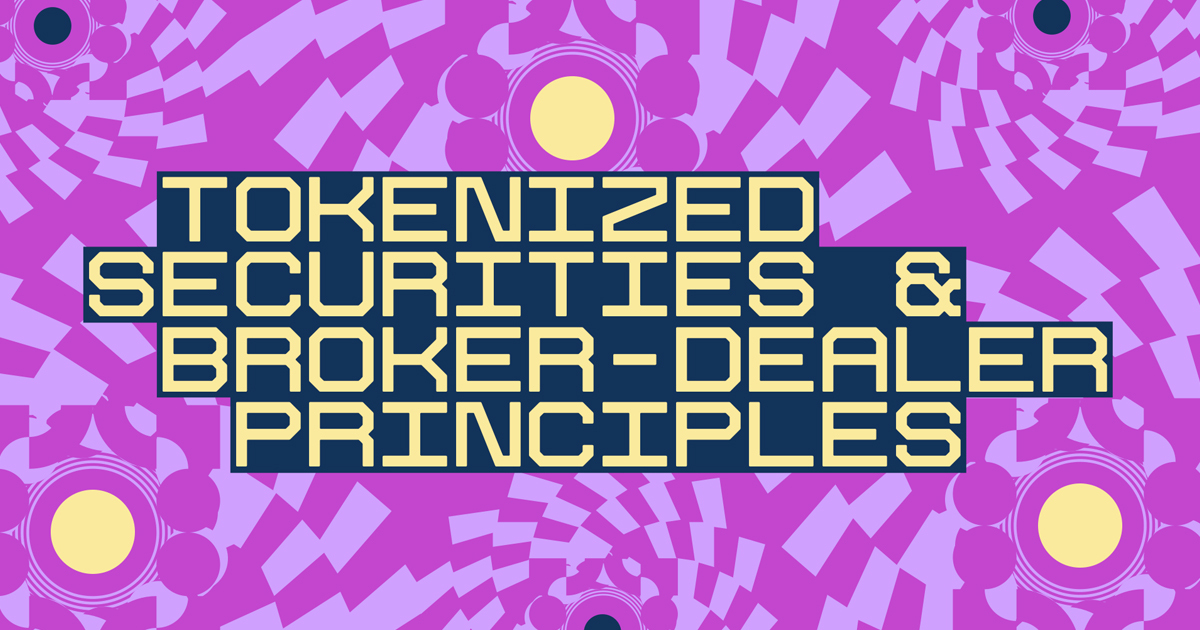As an old leek and investor who has been paying attention to blockchain and crypto assets for a long time, my biggest feeling in recent years is: "Blockchain is not a ticket, it is gradually becoming the underlying logic of new financial infrastructure." ”
Recently, I read this submission submitted by #A16Z to the U.S. SEC, and to be honest, after reading it, I felt that this is a real move to promote regulatory modernization based on market practice. Let me break down a few key points and briefly talk about why #RWA will have great changes in the future financial field.
🌐 Blockchain is like the Internet of the past, to kill the "old form"
Just as the Internet has changed the way we read news and send emails, blockchain also needs to redefine the "registration and circulation of assets".
To give the most intuitive example: now a stock may go through brokers, clearing houses, and transfer agents from trading to delivery...... Various intermediaries and processes are time-consuming and costly. And if this stock is "tokenized on the chain", for example, it is like a red envelope in your WeChat - one-click payment, one-click arrival, almost no middleman, efficiency, transparency, security, all-round upgrades.
💰 Stablecoins and tokenized securities are the "first stops" of this wave of technological dividends
What you see now #USDC and #DAI are actually part of "tokenized assets". In the future, traditional assets such as stocks, bonds, and funds will also become "programmable assets" on the chain, which are open 24 hours a day and can also be transferred across borders with one click.
Blackstone, Citigroup, JPMorgan Chase and other large institutions have long begun to lay out. And the SEC also realizes that the old legal framework cannot control or stop the wheels of new technologies.
📜 What is the problem? The regulations are so old that it's like watching a 4K movie on a black and white TV
For example, the SEC's rules have this clause: customer transaction records and transfer information must be kept in paper or electronic versions. The problem is, now that all operations on the chain are auditable and trackable, and the records are inherently on the chain, you still have to build a table manually? Isn't this taking off your pants and farting?
For example, some rules stipulate that fund shares cannot be sold at a price higher than the net asset value. This was originally intended to prevent fraud. But on-chain, you can use code to implement a "dynamic, automatic, and intermediary-free" pricing mechanism. If the regulations are not updated, they will become a "roadblock" to the implementation of technology.
📈 For investors, the benefits of tokenization are "real"
✅ Faster transactions: In the past, it took T+2 to deliver, now it may be T+0
✅ Lower risk: Atomic settlement mechanism can make transactions "only one transaction, either all or no"
✅ Greater liquidity: 24/7 trading hours, the secondary market opens up more opportunities
✅ More transparent: Ownership, transaction records, and rule enforcement are all on-chain, so there is no need to be afraid of tampering
In other words, the friction of the financial system is being flattened, efficiency is soaring, and trust costs are falling, which is a systemic evolution.
📣 The article makes a few key suggestions for the SEC, which I think are particularly appropriate:
1️⃣ Don't let technology be "stuck" by old rules: For example, on-chain records should be recognized as equal to legal and compliant records, and there is no need to repeat "on-chain + off-chain".
2️⃣ Give a way out for secondary trading of tokenized funds: Don't let the "pricing rules" be too dead, causing fund shares on the chain to be unable to trade freely.
3️⃣ Clarify the dominance of federal regulation: prevent each state from having a different set of "crypto licenses", so that projects do not dare to land.
4️⃣ Let brokers participate in the crypto asset business with confidence: clarify how to do net capital, risk deduction, and pledge processing, otherwise no one will dare to move.
5️⃣ Encourage innovation, but protect the bottom line of investors: This is very important, regulatory liberalization is not the same as laissez-faire, and legal compliance is always the basics.
🔮 My verdict: now is the "infrastructure stage" of the #RWA financial revolution
What we are seeing now is that the foundation of the on-chain securities market is being laid. From asset digitization, transaction automation, modernization of regulatory rules, to the on-chain of infrastructure institutions - if these things are not done well, the "on-chain capital market" will not be able to rise in the future.
And this response, the attitude is very professional, rational and clear. I even feel that it has handed over a "technology roadmap" to the SEC - telling you how to go, how to change, how not to be one-size-fits-all, and not to miss out on innovation dividends.
Looking ahead, we can no longer regard blockchain as a "tool for currency speculation", which is reshaping the underlying operation of securities and finance. This proposal is to make the SEC "open its eyes" and not be tied to the system of the past few decades. Modern financial infrastructure must be supported by modern regulatory logic. We, long-term investors, are really excited to see this response. Because it shows that people who really know how to do it are promoting this revolution in the right direction. 🧐 We are looking forward to the great changes that #RWA will bring!
Current net capital rules weren’t built for crypto.
Broker-dealers need regulatory guidance designed for the future of tokenized markets.
From staking rewards to trade settlement, we @a16zcrypto lay out principles for modernization that preserve capital markets protections.
See blog post in 🧵

21.58K
73
The content on this page is provided by third parties. Unless otherwise stated, OKX is not the author of the cited article(s) and does not claim any copyright in the materials. The content is provided for informational purposes only and does not represent the views of OKX. It is not intended to be an endorsement of any kind and should not be considered investment advice or a solicitation to buy or sell digital assets. To the extent generative AI is utilized to provide summaries or other information, such AI generated content may be inaccurate or inconsistent. Please read the linked article for more details and information. OKX is not responsible for content hosted on third party sites. Digital asset holdings, including stablecoins and NFTs, involve a high degree of risk and can fluctuate greatly. You should carefully consider whether trading or holding digital assets is suitable for you in light of your financial condition.


